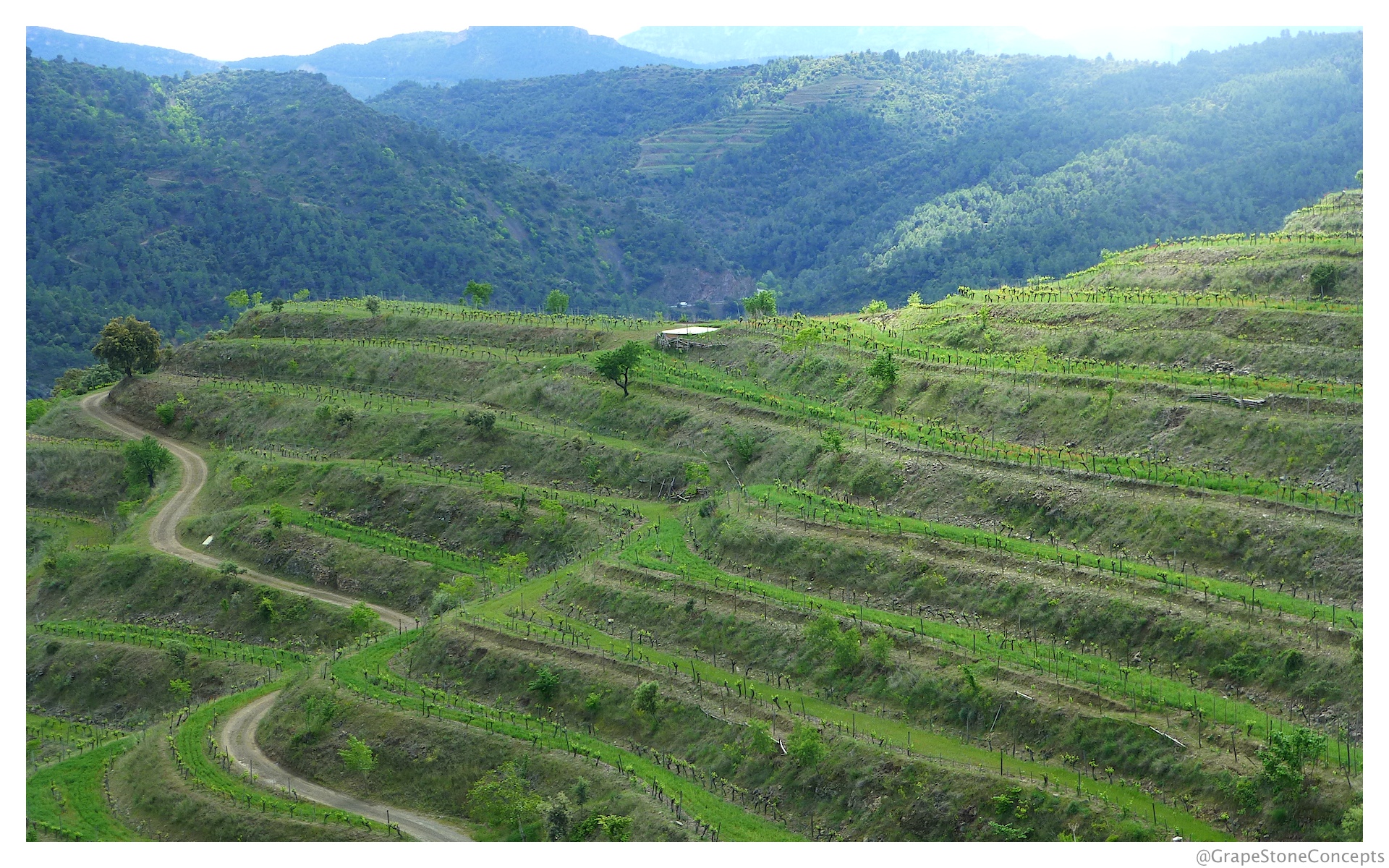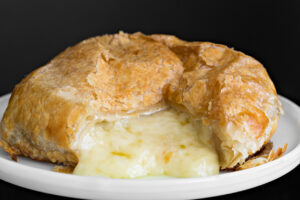The Priorat wine region is located just two hours southwest of Barcelona and sits at the foot of the magnificent Montsant Mountains (Serra de Montsant means “Holy Mountain Range.”) The wines of Priorat are considered some of the world’s finest. The landscape begs for a leisurely hike from village to vineyard on the well-marked trails. Eleven charming villages dot the landscape and remind you of the picturesque Tuscan hilltop towns of Italy.
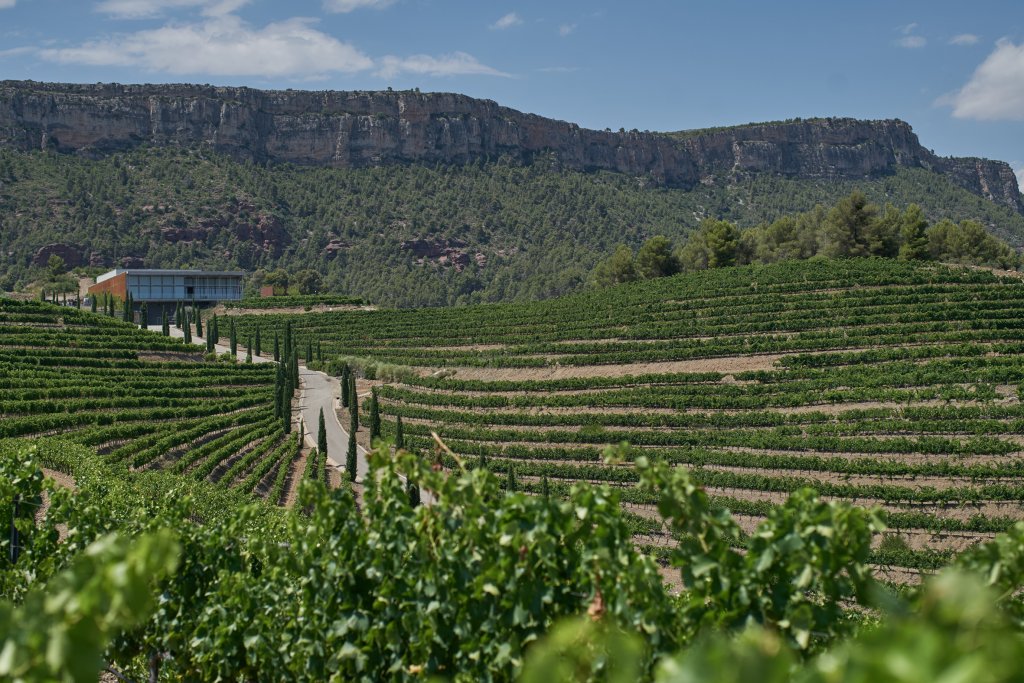
The history of the Priorat’s founding monks, is deep and the surroundings reflect the turbulent and formative epochs: medieval feudal lords, Moorish invasion, Spanish civil war, and modern winemaking pioneers. Follow me to the Priorat countryside and we will discover several of its most distinctive wineries: Perinet, Scala Dei, and Torres Priorat.
Priorat History and Vineyards
The Priorat region is named for its monastery, or priory. In the 12th century Carthusian monks chose this quiet, high mountain range location as a place that seemed to be closer to God. The monks named their monastery Scala Dei – or “God’s ladder.” Additionally, the monks founded the winemaking tradition of the region.
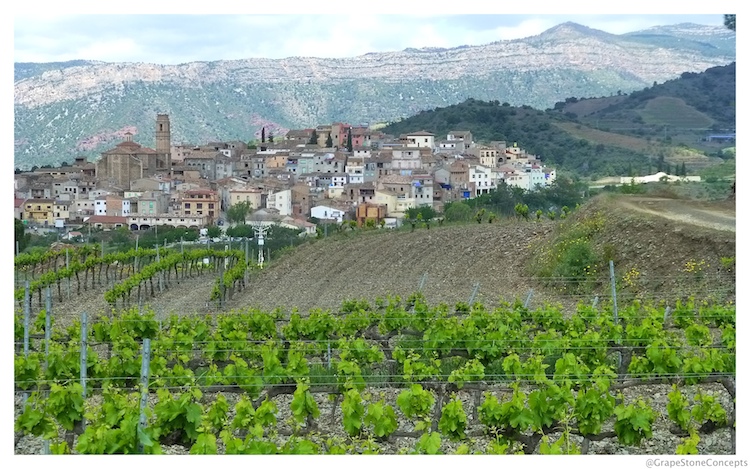
Thirty years ago the world rediscovered the quality of the wines of this DO/Designated Appellation region after centuries of obscurity. The unique terroir*** and characteristics of the area encompass vineyards planted in “licorella” slate volcanic black soil where the mountainsides are steep and the climate is arid. These factors of the terroir force the taproots of the vines to extend as far as 80 feet down into the mountainside, thus creating highly concentrated berries, and deep, extracted Garnacha grape juices.
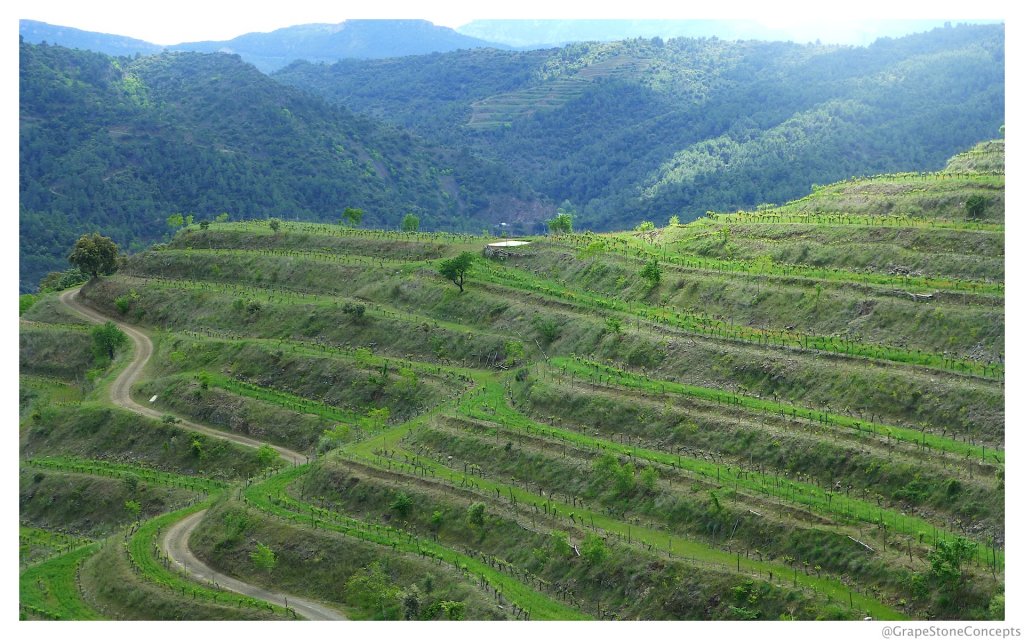
The Priorat is one of only 2 DOQ’s (Denominació d’Origen Qualificada) or “Quality Wine Designation” areas in Spain. Rioja is the other. Many of the Priorat wines are highly rated by the famous critic Jancis Robinson, and the experts at Wine Spectator. Red, white, rosata, and fortified wines are made in this region, but the red blends of Garnacha, Cabernet, Cariñena, and Syrah dominate the wine scene. Eighty percent of the wines made in this region are exported to other countries, mostly the USA and UK.
Perinet Winery
The Perinet Winery sits on the mountainside next to its magnificent, steep vineyards. Its modern tasting room design is welcoming and accommodates a wide choice of wine tasting experiences. The state-of-the-art winery was completed in 2004 and features an exquisite Gaudi-inspired barrel room designed to function both as a barrel cellar and an entertainment venue.
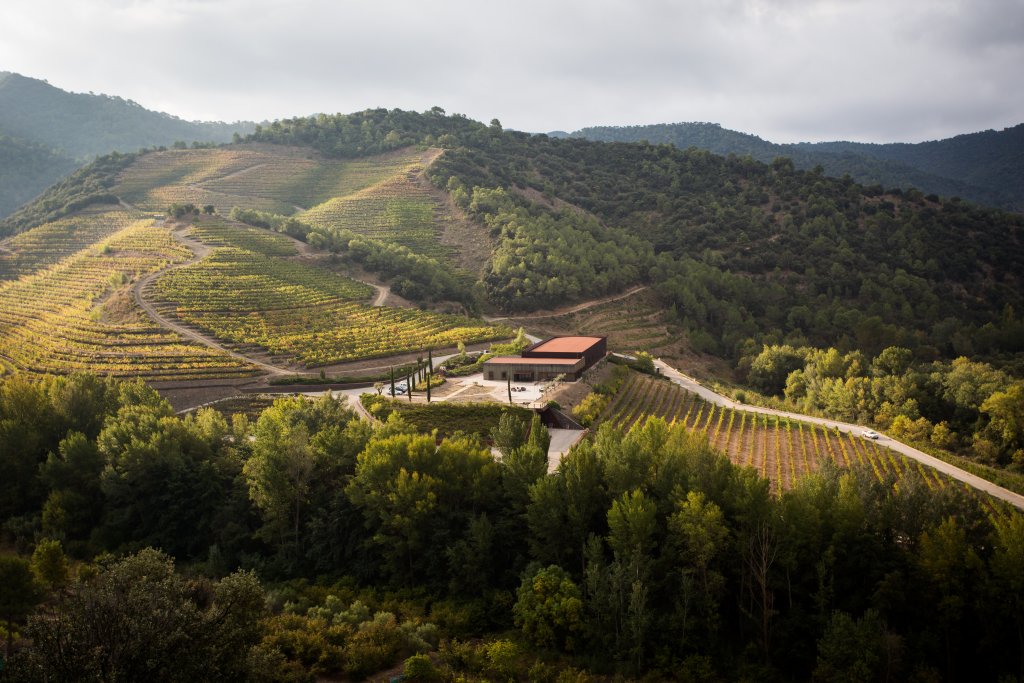
Perinet sits on 133 acres with 54 of those acres planted to local varietals of Carignan and Grenache/Garnacha along with Cabernet Sauvignon, and augmented with the international varietal grapes of Cabernet Sauvignon, Syrah and Merlot. In 2017 vintner Robin Baggett, managing partner of Alpha Omega winery in Napa Valley and Tolosa wineries, acquired a stake in Perinet Winery.
Says Perinet CEO Kevin McGlynn, “Perinet is the jewel of the Priorat. Each vineyard block takes on its own character burrowing deep into Licorella soils, the rare slate and quartz-laden soils that define the Priorat. In conditions almost impossible for other plants to grow, our vines thrive in their search for water and nutrients, a true “struggle of the vines” to produce world-class wines.” McGlynn adds, “With the leadership of Alpha Omega and Tolosa’s wineries in the DTC, Direct-to-Consumer markets, we are confident that our wines will be well-received in the US market.”
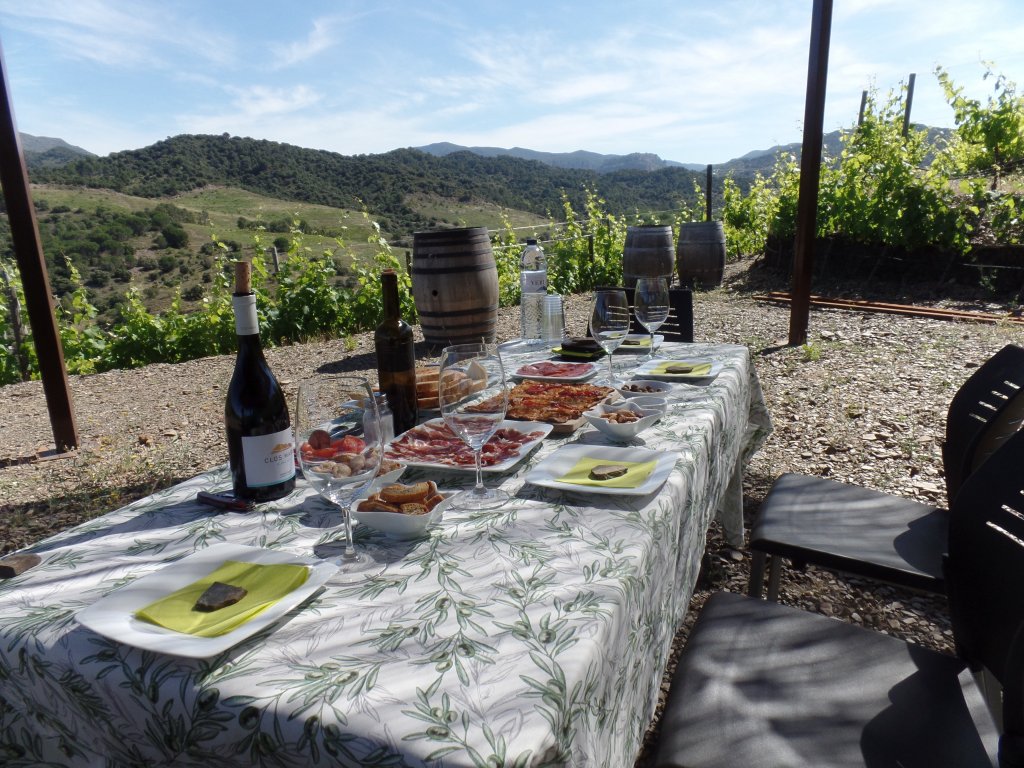
Perinet offers four levels of wine tour and tasting experiences. We were fortunate to experience the “Breakfast in the Vineyard,” a morning wine tasting pairing their wines with fresh pastries and Spanish locally-cured meats. Perinet also offers wine experiences ranging from the traditional winery-based tasting to custom group tours scaling the mountainside vineyards and seeing up-close the wine-making process in action. Perinet Winery offers a USA wine Club and also ships directly to the UK.
Cellars Scala Dei
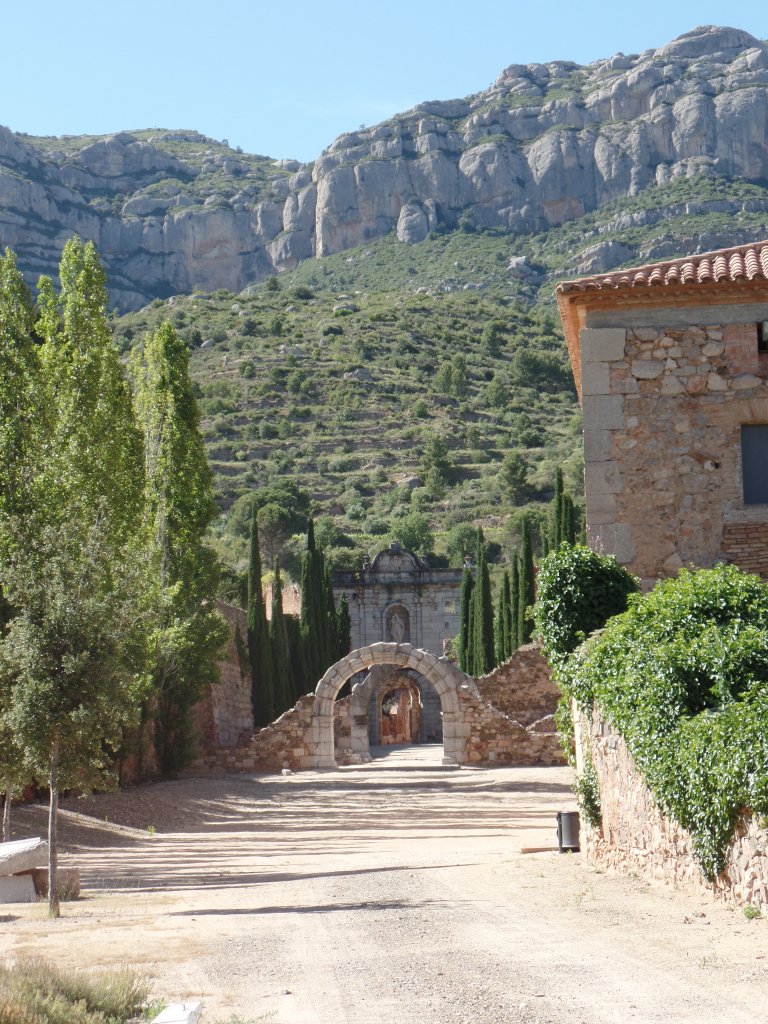
Scala Dei is the oldest winery in the Priorat region. This is Priorat’s most historic winery. In 1163 Carthusian monks established the site. After years of neglect and mass emigration from the region, in the 1800’s five families acquired the properties and set up the Societat Agricola l’Unió agricultural society. They bottled their first Priorat wine in 1878 and presented them at the Paris World’s Fair Exposition. The company was re-founded in 1974, once again resulting in the first modern wines bottled in the region.
Ninety hectares of vineyards comprise the Scala Dei estate with the vineyards distributed over forty different sites. Four varieties of grape are grown: Grenache, Cariñena, Cabernet Sauvignon, and Syrah. In the year 2000 Scala Dei became part of the vast Codorníu Raventós Group, a wine company famous for its Spanish Cava sparkling wines. This investment has provided for the physical site expansion and a broadening of the wine portfolio with an additional focus on white and rosé wines.
We took a private tour of the rugged terrain and vineyards in a jeep. The steep hills and breathtaking views were well worth our taking a day excursion from Barcelona. It was easy to see the distinct vineyard sites and understand how each could result in a different terroir expression in the single vineyard-designated wines. The Scala Dei estate has three levels of wine tasting tours, ranging from a traditional three-wine sample to an extensive tour of the historic property with a full range of wine tasting.
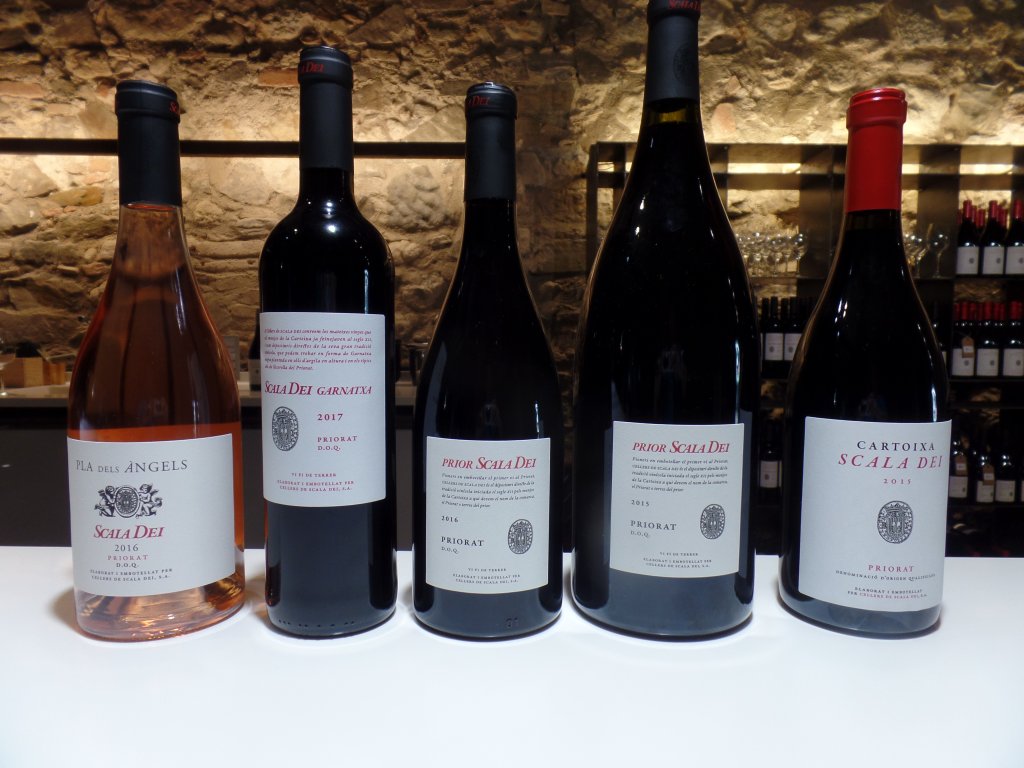
We sampled all the Scala Dei wine portfolio and were highly impressed the obvious care in winemaking. Our three favorites were:
*Pla dels Angels Rosé, a fresh face of the Garnacha grape.
* St. Antoni d’Scala Dei, a powerful, deep red Garnacha wine crafted from the grapes of 1945-era vineyards.
* Scala Dei Cartoixa, a blend of Garnacha Tinta and Cariñena from hand-harvested from sixty-year-old vines on steep hillsides. The tilled soil and violet aromas are fragrant and inviting. The wine has an alluring boysenberry ripeness.
Torres Priorat
Torres Priorat is one of the newer, exciting ultra-modern wineries in the region. The Miguel Torres wine empire encompasses some of the largest Spanish fine-wine holdings, Chilean Central Valley wines, and Miramar Estates in Sonoma, California. Torres is also Spain’s largest producer of DO wines (fine, appellation-specific wines) under its own label, exporting to more than 140 countries.
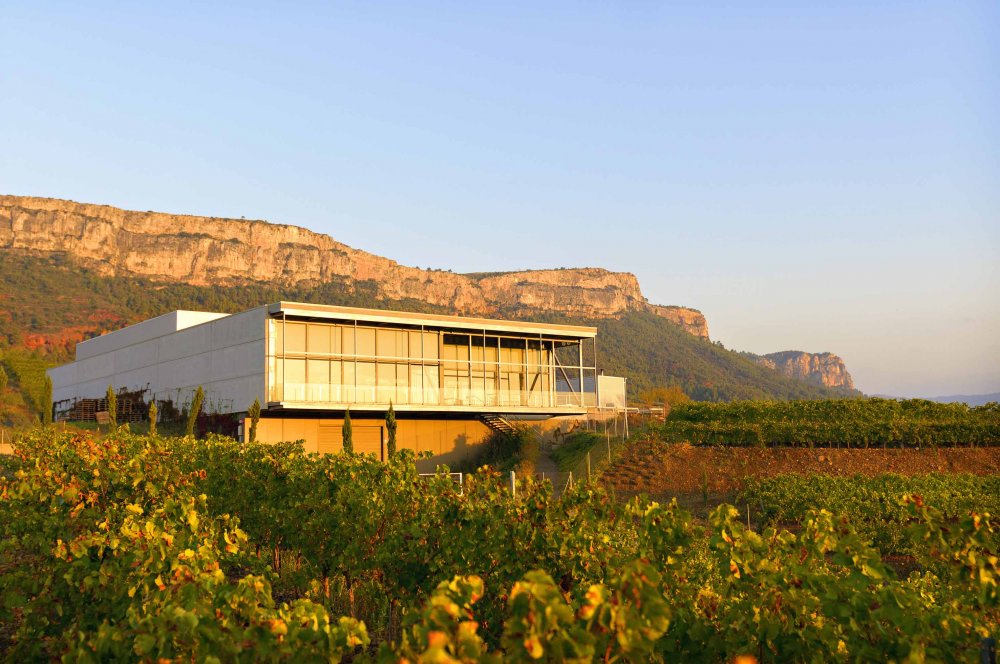
I was fortunate to have a wine-pairing lunch with Miguel Torres Maczassek, a fifth-generation Torres, at the Torres Group Headquarters in Penedes, Spain in 2014. In 2012 Miguel became the General Manager of the Torres Group, following in the footsteps of his father Miguel A. Torres.
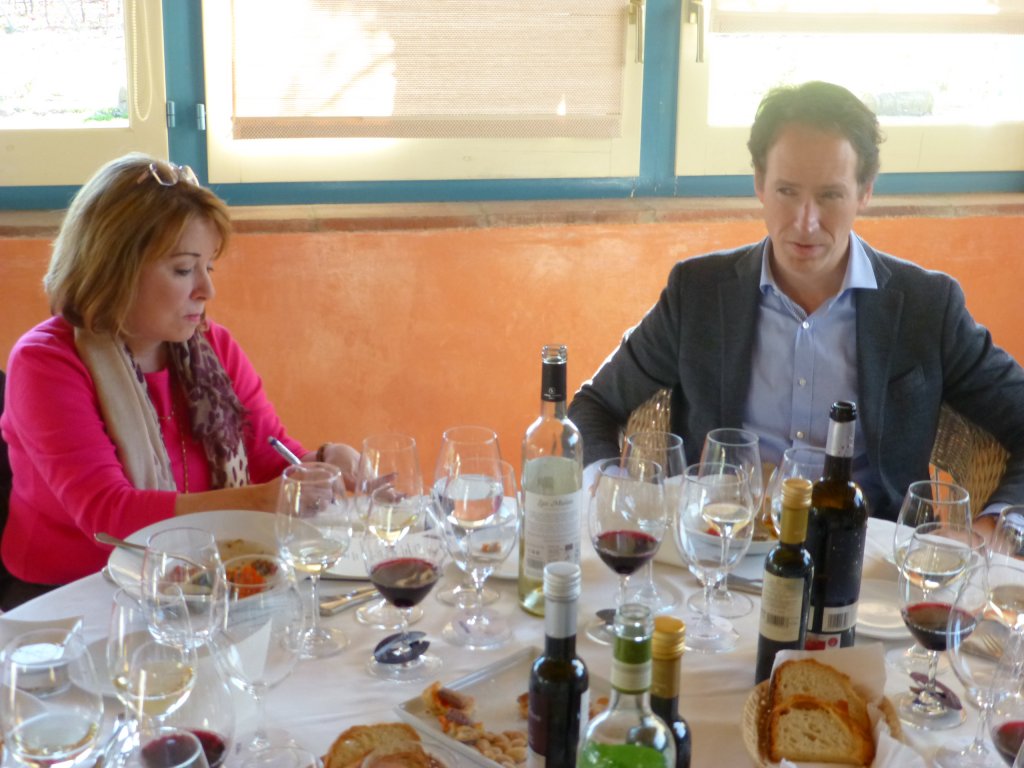
The Salmos Priorat wine was one that still impresses me five years later. Salmos is broadly distributed and available. It ranks as one of my major “good value” Priorat wines. The younger Miguel’s wife hails from North Carolina and Miguel spent time studying there, thus they possesses a perspective on the US and UK wine markets, understanding that a laser-focus is needed for custom retailing in these major wine-consuming countries.
Miguel says he “feels at home in the Catalan hillsides.” The Torres Priorat winery actually is the third top producing estate in Priorat, producing over 12,000 cases per year. The Salmos and Perpetual labels are its signature wines. The Salmos was the winery’s first successful Priorat wine. The Perpetual, Garnacha, and Cariñena grapes, blended and aged for 18 months in new French oak barrels, continues to garnish awards like Wine Advocate’s rating the 2008 with 94 points.
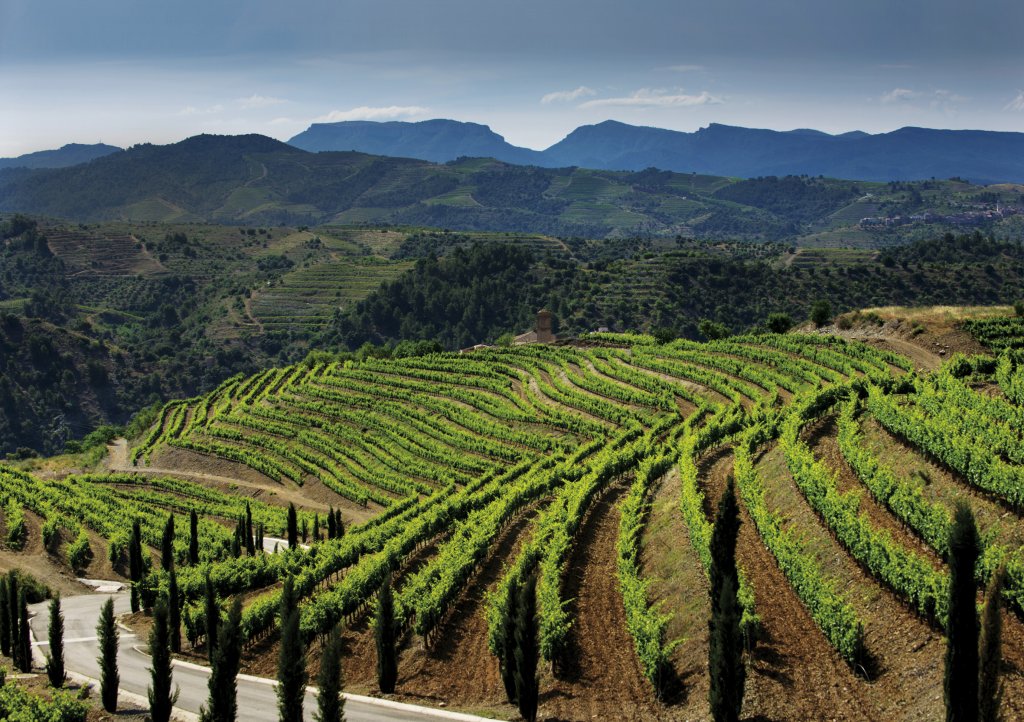
According to Miguel, some of the focus of the Torres Group is “Climate change affecting vineyards…discovery of indigenous “new” Spanish grapes in Torre’s genetic laboratories… and understanding and appealing to the new wine consumers.” The Torres attention on both new technologies and traditional methods is a winning combination.
Discovering Priorat
Priorat is anticipating a rise is tourism and increased economic development. While this growth and interest is welcomed, the region is trying to preserve the environment, its history and traditions. Priorat’s transformation from a sleepy, back-roads wine region to one of the world’s premier viticulture destinations is stunning. With a plethora of first-quality wines to enjoy and a breathtaking, but rugged terrain to hike, the active wine connoisseur and trekker alike will enjoy Priorat. New luxury accommodations are magnificent. Take a day trip from Barcelona to this magical wine region and you can experience a scenic wine adventure beyond the normal city sightseeing excursion.
***What is Terroir? “Terroir” is a French term representing the special combination of climate, soil, geography, elevation, and growing conditions that are unique to a vineyard or viticulture region. Does this wine express the aromas, body, and flavor of its terroir? Does it have a “sense of place”? The good ones often do.
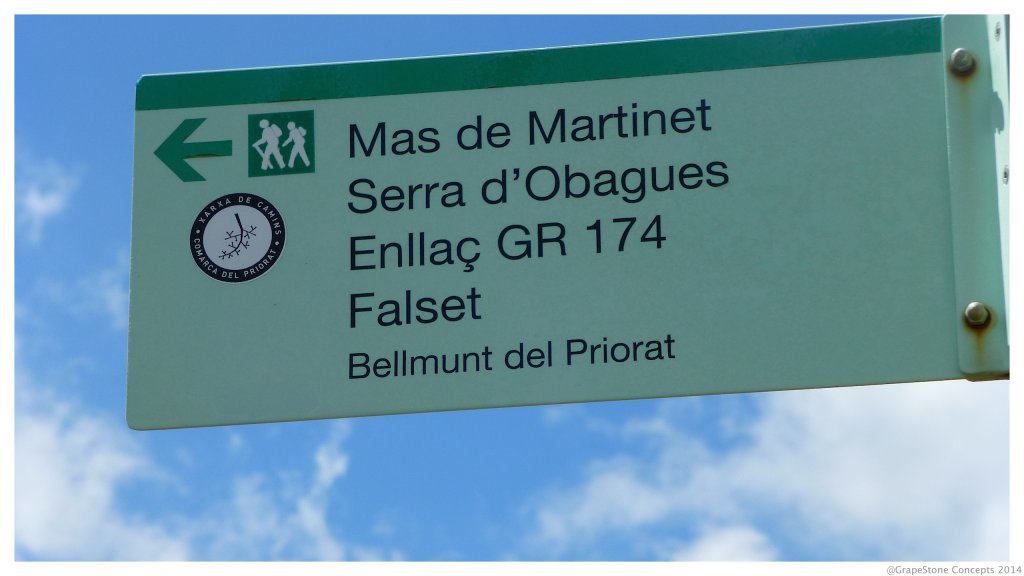
How to Get There:
The Priorat region is accessed from an easy 1½ hour train ride from Barcelona train stations, arriving in Marçà Falset or Reus stations, or by arranging private transportation with tour guides.
Winery Tours and Tastings:
Email: [email protected]
Tel: 0034 977 827 113
Email: [email protected]
Tel: +34 977 82 70 27 (Celler) / 977 82 71 73 (Shop-Visits)
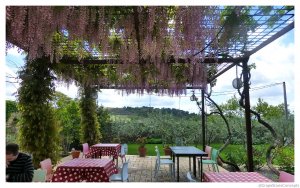
Where to Stay:
New luxury hotel/winery:
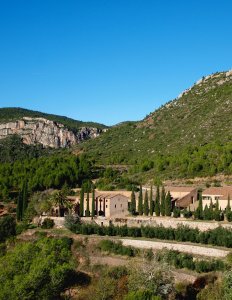
Road T-702 Km 13 (Between Escaladei and la Vilella)
43379 Escaladei
Tarragona
Tel: 0034 877 91 22 92
Make reservations here.
Find the Wines:
Perinet Priorat 2015 Merit, $23, Vivino 4 of 5 Stars
Scala Dei: Conreria d’Scala Dei Black Slate Escaladei, $21, Robert Parker 92 Points
Torres Priorat Salmos 2013, $30, Wine Enthusiast 93 Points

